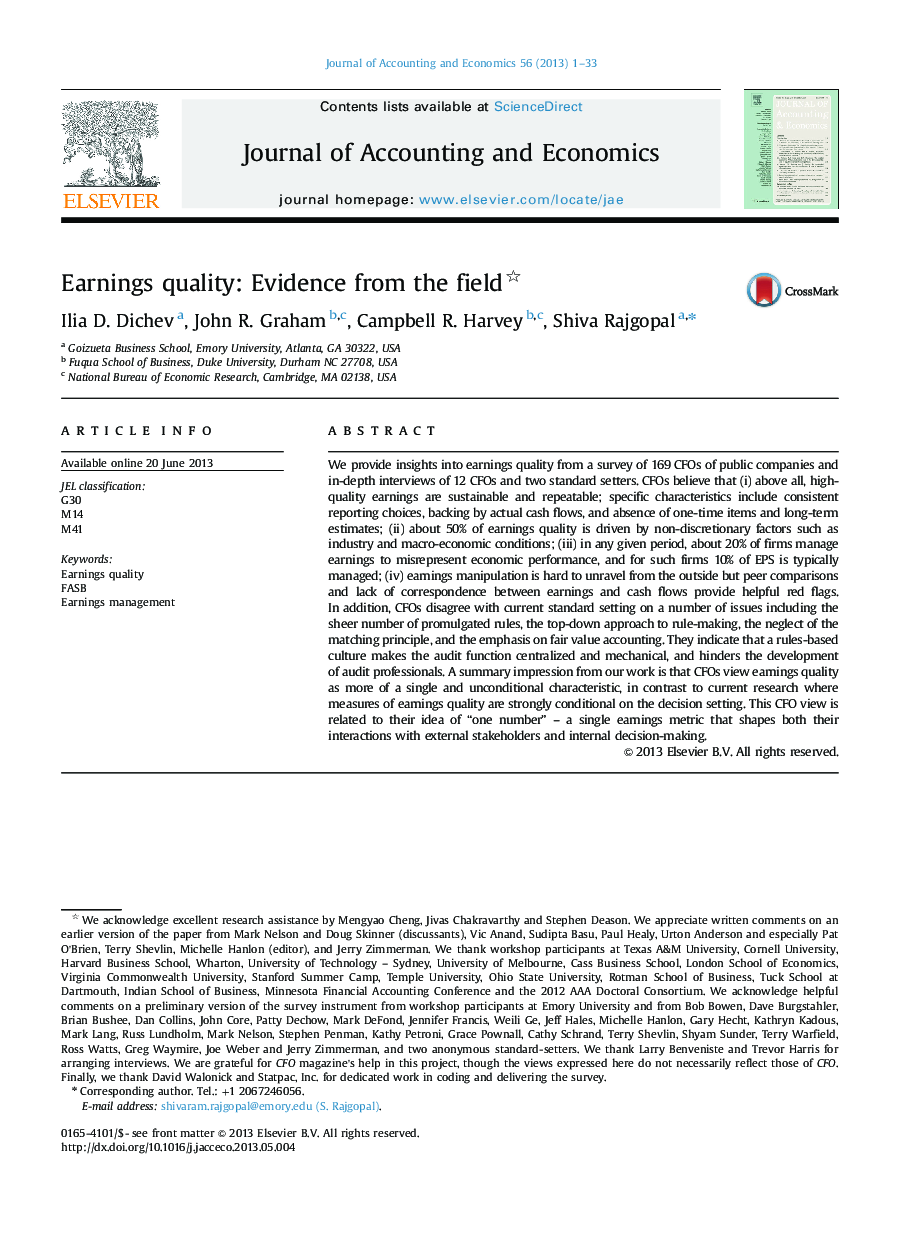| کد مقاله | کد نشریه | سال انتشار | مقاله انگلیسی | نسخه تمام متن |
|---|---|---|---|---|
| 5086691 | 1478189 | 2013 | 33 صفحه PDF | دانلود رایگان |
- High-quality earnings are sustainable and backed by actual cash flows.
- Earnings quality is not as context-dependent as previously thought.
- About 20% of firms manage earnings to misrepresent performance, and for such firms 10% of EPS is typically managed.
- CFOs believe FASB issues too many rules, and disagree with the de-emphasis of matching and over-emphasis of fair-value accounting.
- CFOs worry that a rules-based culture makes the audit function centralized and mechanical.
We provide insights into earnings quality from a survey of 169 CFOs of public companies and in-depth interviews of 12 CFOs and two standard setters. CFOs believe that (i) above all, high-quality earnings are sustainable and repeatable; specific characteristics include consistent reporting choices, backing by actual cash flows, and absence of one-time items and long-term estimates; (ii) about 50% of earnings quality is driven by non-discretionary factors such as industry and macro-economic conditions; (iii) in any given period, about 20% of firms manage earnings to misrepresent economic performance, and for such firms 10% of EPS is typically managed; (iv) earnings manipulation is hard to unravel from the outside but peer comparisons and lack of correspondence between earnings and cash flows provide helpful red flags. In addition, CFOs disagree with current standard setting on a number of issues including the sheer number of promulgated rules, the top-down approach to rule-making, the neglect of the matching principle, and the emphasis on fair value accounting. They indicate that a rules-based culture makes the audit function centralized and mechanical, and hinders the development of audit professionals. A summary impression from our work is that CFOs view earnings quality as more of a single and unconditional characteristic, in contrast to current research where measures of earnings quality are strongly conditional on the decision setting. This CFO view is related to their idea of “one number” - a single earnings metric that shapes both their interactions with external stakeholders and internal decision-making.
Journal: Journal of Accounting and Economics - Volume 56, Issues 2â3, Supplement 1, 15 December 2013, Pages 1-33
